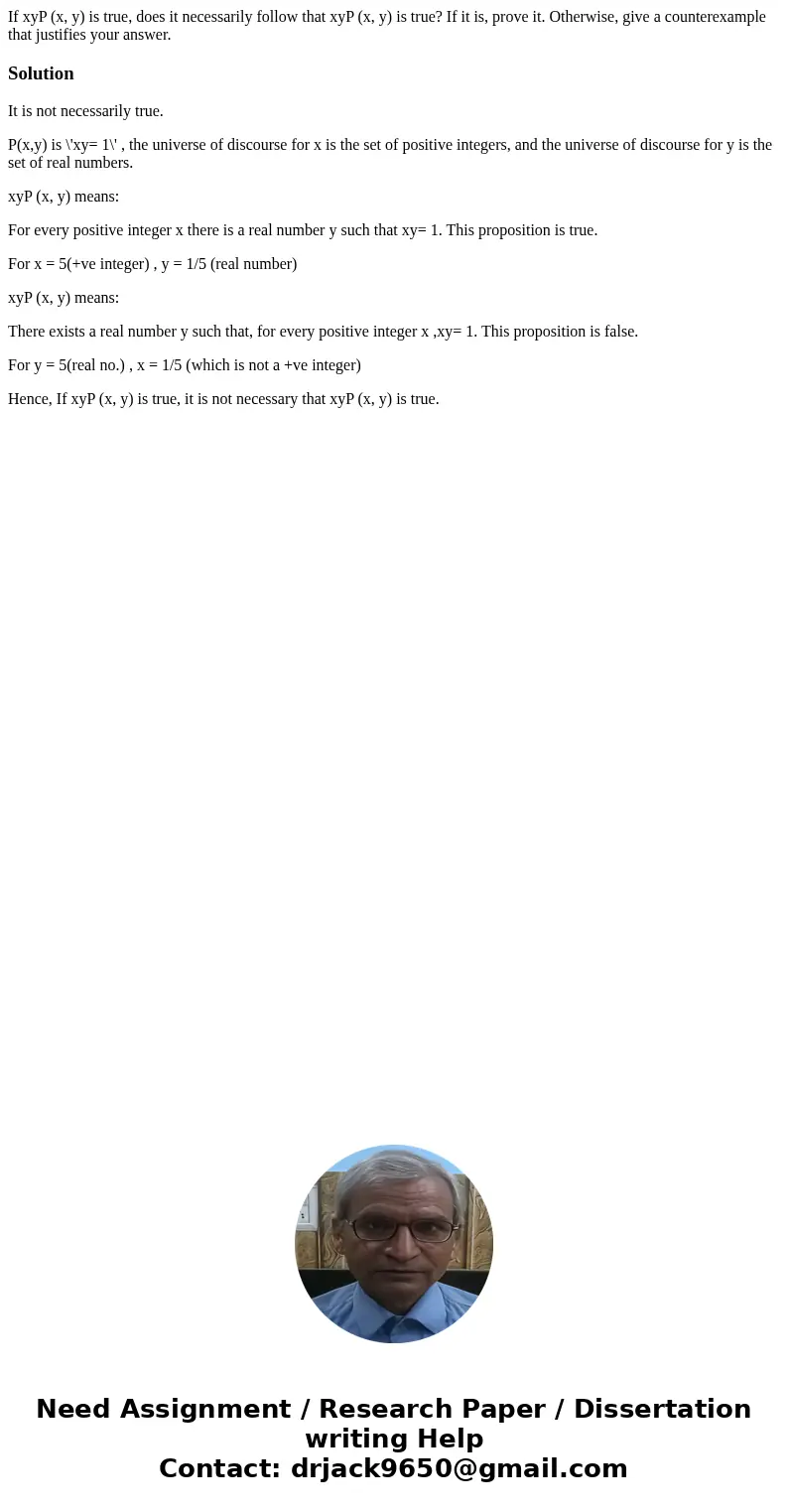If xyP x y is true does it necessarily follow that xyP x y i
If xyP (x, y) is true, does it necessarily follow that xyP (x, y) is true? If it is, prove it. Otherwise, give a counterexample that justifies your answer.
Solution
It is not necessarily true.
P(x,y) is \'xy= 1\' , the universe of discourse for x is the set of positive integers, and the universe of discourse for y is the set of real numbers.
xyP (x, y) means:
For every positive integer x there is a real number y such that xy= 1. This proposition is true.
For x = 5(+ve integer) , y = 1/5 (real number)
xyP (x, y) means:
There exists a real number y such that, for every positive integer x ,xy= 1. This proposition is false.
For y = 5(real no.) , x = 1/5 (which is not a +ve integer)
Hence, If xyP (x, y) is true, it is not necessary that xyP (x, y) is true.

 Homework Sourse
Homework Sourse